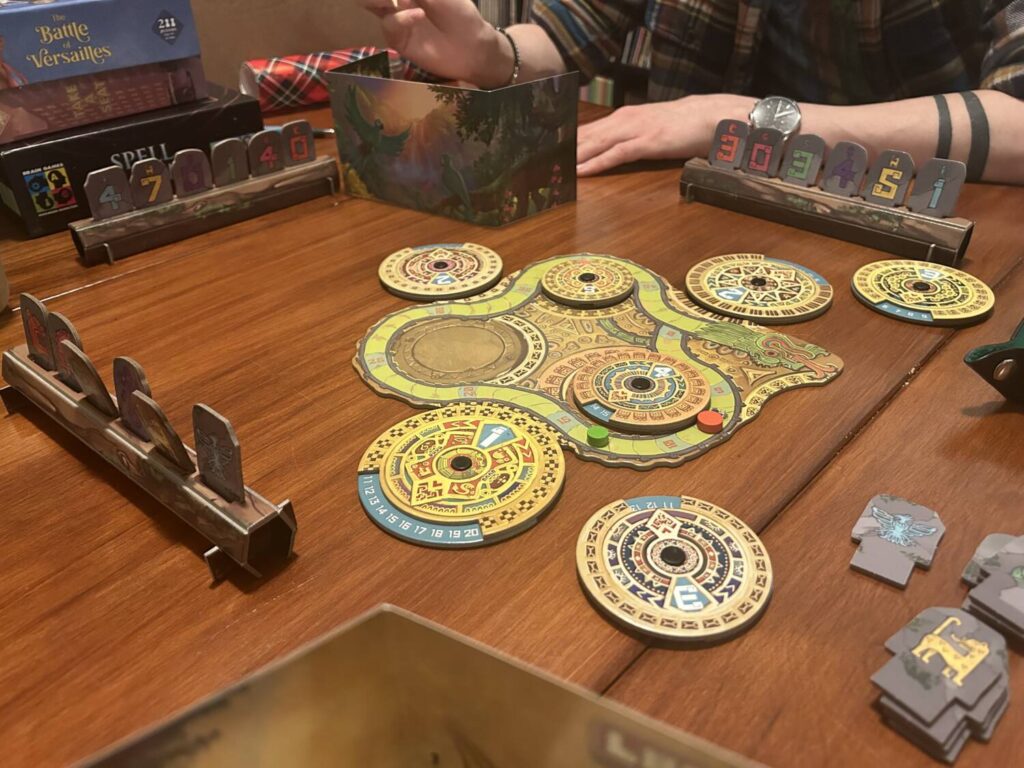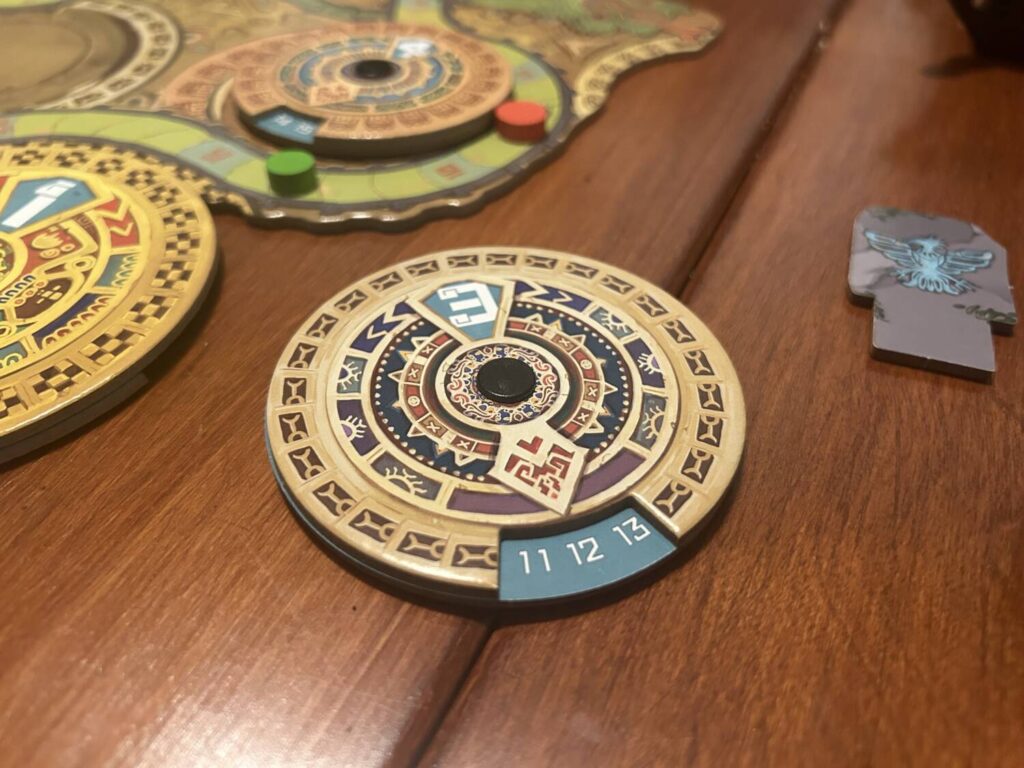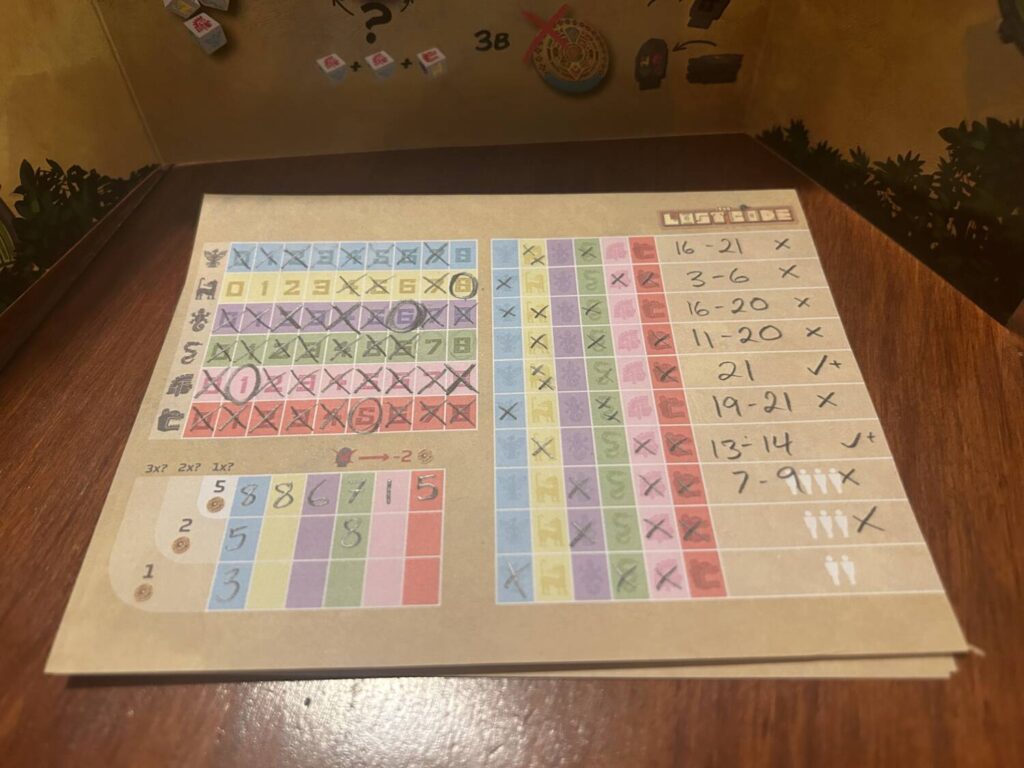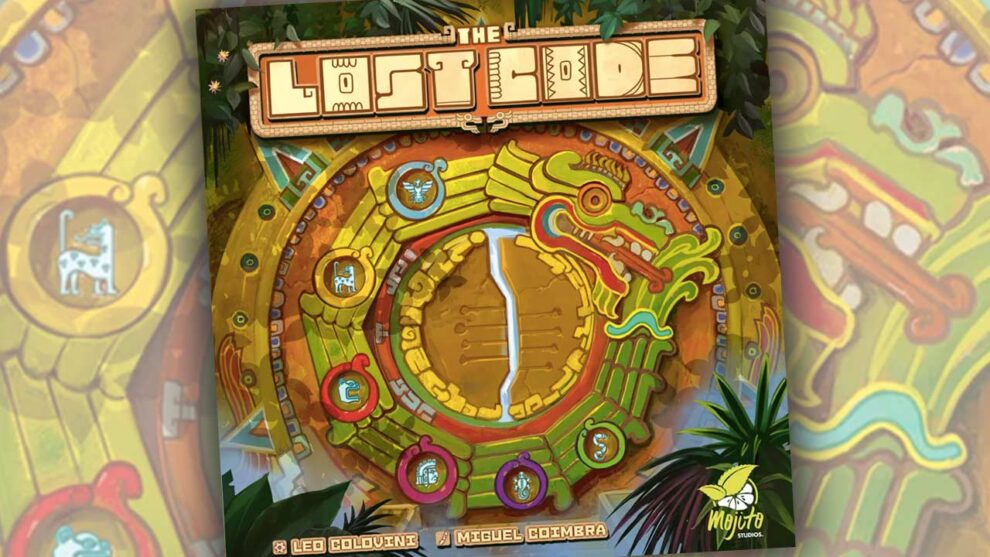Disclosure: Meeple Mountain received a free copy of this product in exchange for an honest, unbiased review. This review is not intended to be an endorsement.
The Lost Code is a straight, no frills deduction game. Each player gets six tiles, one in each color, and a display to hold those tiles. In a game with fewer than four players, dummy displays are set up for the missing participants. Every tile has a number between either 0 and 7, or 0 and 8 if you use optional rules. You get to see everyone else’s numbers, but you don’t get to see your own. Your goal is to figure out the numbers you have in front of you.
In the middle of the table, the gorgeous board is set up with score markers for the players and slots for all seven of the guessing wheels, double-layered discs used in the deduction process. The board is an unusual shape, and the scoring track is a feathered serpent, winding its way between the guessing wheels. It’s too bad that so much of The Lost Code is spent staring at your sheet, since people are unlikely to take time to appreciate the board. It could have been boring, and it is anything but.
The final bit of setup: take a pencil and, on your note sheet, cross off all the numbers you can see around the table. You know none of those numbers are your numbers, so that helps narrow things down. At last, we are ready to begin.

Begin
The player in last place rolls three dice, each side of which corresponds to one of the six colors. They can change one of the three sides to any color they want after rolling. At that point, each player in turn takes a guessing wheel. The wheels have a display range, showing somewhere between 1 and 10 of the numbers between 0 and 21. At this point, you are trying to guess the sum of the numbers in the colors shown on the dice.
As an example: Say my display included a yellow 3 and a red 6. Keep in mind, as we move forward here, that I do not know that. The dice show two yellows and a red. I’m last, so I end up with the wheel whose display shows five digits. I am pretty sure yellow is either a 3 or a 4, and red is on the higher end, so I set the wheel to show 11-15.

Each player’s total is verified by the other players at the table. If you’re right, you score a number of points inversely related to the size of the display on your wheel. If you’re wrong, you don’t score points, but you do find out if the real number is higher or lower than what you guessed.
Through this process, over the course of between 8 and 10 rounds depending on player count, you start to figure out the numbers in front of you.
End
It’s not an entirely static experience. If your guess is wrong, not only do you not score points, you also have to remove a tile from your display and replace it with a new one from the supply. At that point, even you get to see the tile. The downside of getting a guess wrong is that you suddenly have a new injection of unknown. The upside is that you also get a balancing injection of known.
It works alright. In a game with a high player count and bad guesses, the information flows a little too freely. You can narrow down your tile to one of two options—one tile of each color is removed from the game during setup—without having to do a lot of work.

What I like very much about The Lost Code, which isn’t the case for every deduction game, is the ability to strategically make a wrong guess. There are times when getting a guess wrong will tell you much more than getting a guess right, and it may help you get a troublesome tile out of your display.
If you enjoy deduction games, The Lost Code is a perfectly good one. It’s not exemplary. I don’t have any superlatives for it. I will continue to reach for The Search for Planet X or Paint the Roses as my deduction games of choice. They don’t feel as dry. The Search for Planet X has that unusual racing element, and Paint the Roses is the only deduction game I’ve ever played that manages to feel somewhat different from game to game.
That’s my issue with deduction games, ultimately. I love a deduction puzzle, but I don’t love a deduction game. They’re neither particularly social, nor do the vast majority of them reveal new layers after the first play. The Lost Code had a few tricks up its sleeves, but by the end of the first game, the sleeves were all tapped out.











Add Comment